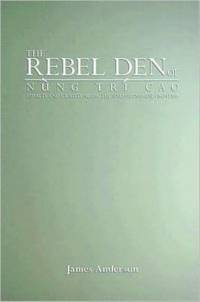Om The Rebel Den of Nung Tri Cao
The Rebel Den of Nung Tri Cao examines the rebellion of the eleventh-century Tai chieftain Nung Tri Cao (ca. 1025-1055), whose struggle for independence along Vietnam''s mountainous northern frontier was a pivotal event in Sino-Vietnamese relations. Tri Cao''s revolt occurred during Vietnam''s earliest years of independence from China and would prove to be a vital test of the Vietnamese court''s ability to confront local political challenges and maintain harmony with its powerful northern neighbor.
Tri Cao established his first kingdom in 1042, at the age of seventeen, but was captured by Vietnamese troops. After his release in 1048, he announced the founding of a second kingdom, but an attack by Vietnamese forces drove him to flee into Chinese territory. Tri Cao made his final attempt in 1052, proclaiming a new kingdom and leading thousands of his subjects in a revolt that swept across the South China coast. But within a year, Chinese imperial troops had forced him to flee to the nearest independent kingdom. Official Chinese and Vietnamese accounts of the rebel leader''s end vary: according to the Chinese, the ruler of the independent kingdom had Tri Cao executed, but in popular accounts, Tri Cao was granted safe passage into northern Thailand, where his descendants are said to flourish today.
Scholar James Anderson places Tri Cao in context by exploring the Sino-Vietnamese tributary relationship and the conflicts that engaged both the Song and Vietnamese courts. The Rebel Den of Nung Tri Cao reconstructs the series of negotiations that took place between border communities and representatives of the imperial courts, examining the ways in which Tai and other ethnic groups deftly navigated the unstable political situation that followed the demise of China''s cosmopolitan Tang dynasty. Though his rebellion was ill-fated, Tri Cao is, almost a thousand years later, still worshipped in temples along the Sino-Vietnamese border, and his memory provides a point of unity for people who have become separated by modern political boundaries.
Visa mer

